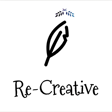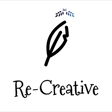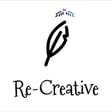
Lisa Brandt and the Gates
Mark and Joe are joined by writer and broadcaster Lisa Brandt to discuss a massive environmental art installation by Bulgarian artist Christo Yavacheff and French artist Jeanne-Claude, the artists known jointly as Christo and Jeanne-Claude.
Lisa started in radio and has since moved into voice-over work and writing for hire as a freelancer, which she loves. She’s also written several books.
The three discuss The Gates, one of the massive environmental art installations of Christo and Jeanne-Claude. The installation was constructed of more than 7,503 steel gates hung with saffron orange cloth, and situated throughout Central Park in New York City. The Gates spanned twenty-three miles in Central Park; it ran from February 12th to the 27th in 2005.
Joe, Mark and Lisa go on to discuss the careers of Christo and Jeanne-Claude, the nature of creativity, and explore the question: what does art do for the soul?
For more information, check out the show notes for this episode.
Re-Creative is produced by Donovan Street Press Inc. in association with MonkeyJoy Press.
Contact us at joemahoney@donovanstreetpress.com





